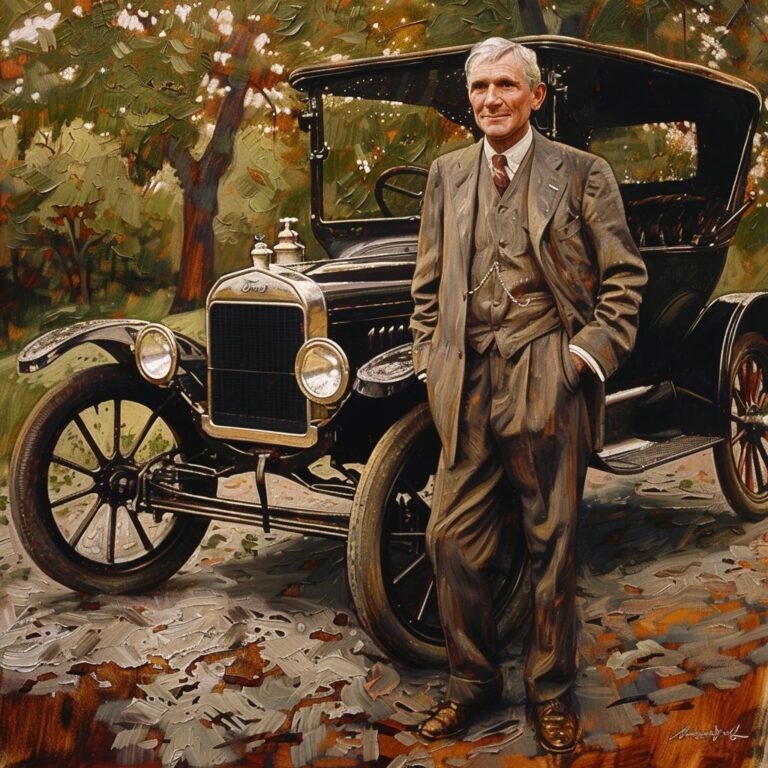Henry Ford was born on July 30, 1863, on a farm in Greenfield Township, Michigan.
He founded the Ford Motor Company in 1903.
Ford introduced the Model T in 1908, which became one of the first affordable automobiles for the average American.
He implemented assembly line production, significantly reducing the cost of manufacturing.
Ford paid his workers a then-unprecedented $5 per day, helping to create a middle class.
He was a pioneer in the development of the automobile industry and mass production techniques.
Ford was an advocate for the use of renewable resources and experimented with making car parts from soybean-based plastic.
He built the first moving assembly line for mass production in 1913.
Ford's business practices and innovations helped shape modern industrial practices.
He was a supporter of pacifism and opposed U.S. involvement in World War I.
Ford established the Ford Foundation in 1936 to promote human welfare.
He was known for his interest in aviation and established the Ford Airplane Company.
Ford's management style and business practices have been both praised and criticized.
He published several books, including 'My Life and Work' and 'Today and Tomorrow.'
Henry Ford passed away on April 7, 1947, in Dearborn, Michigan, and left a lasting legacy in the automotive and manufacturing industries.



